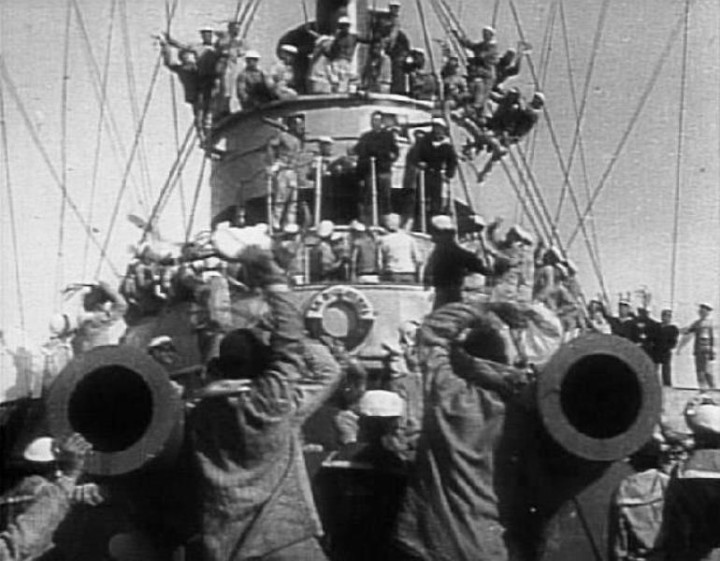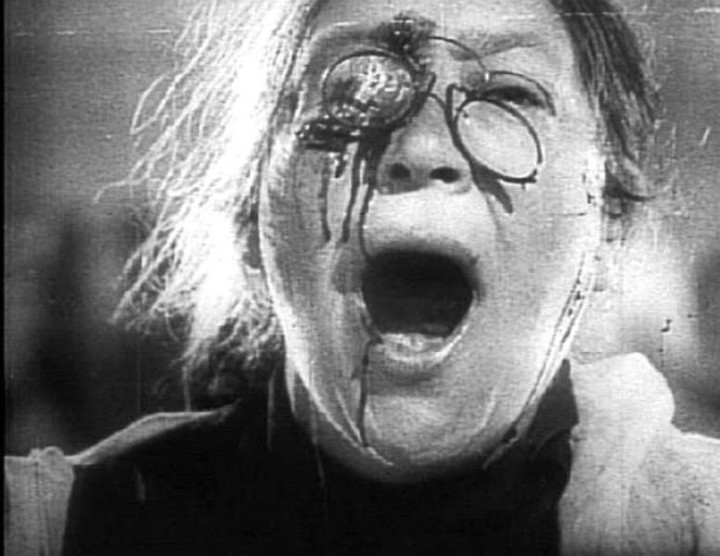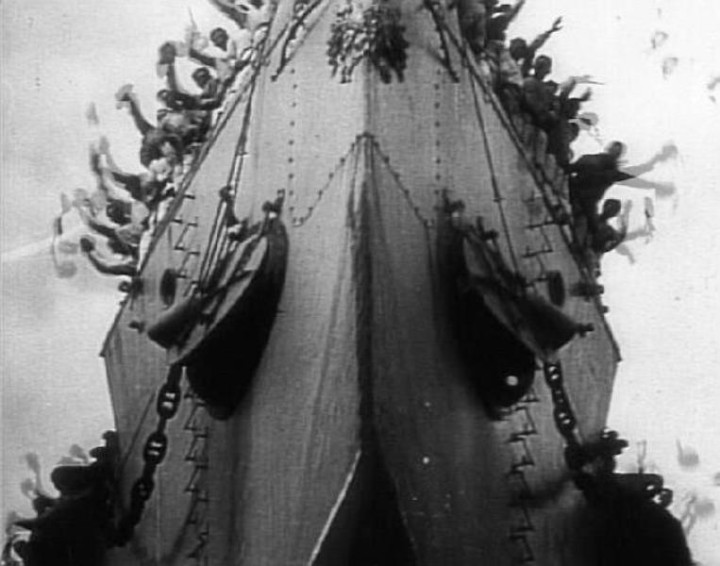I clearly remember my first exposure to Sergei Eisenstein’s Battleship Potemkin (1925). It was on PBS’ “Film Odyssey” series in 1971 when I was 16. In those days, movies like this were rarely seen in the wilds of Lake Wales, Florida (just ask World Cinema’s Carlos Steward who grew up about 20 miles away in Haines City, which made Lake Wales look like a cultural mecca). Even books on movies were just getting out of the purely nostalgic cut-and-paste stage. (Your typical “Films of” book consisted of a — frequently incorrect — synopsis, some excerpts from vintage reviews, and a lot of stills.) My only familiarity with Potemkin (as it was then usually called) was a catch-all book called Classics of the Foreign Film. That meant I knew it was highly-regarded and had seen some stills and been told that the “Odessa Steps” sequence was remarkable. Actually seeing it was like a gift from the gods. The experience itself was what we then called “mind blowing.” Its then-secure position as :one of the five greatest movies ever made” more than made sense. Seen again, it still is — even if its position in a world that thinks The Dark Knight (2008) is one of the great film is no longer that secure.
I freely admit that these many years later I actually prefer Eisenstein’s Strike (1924), but that does nothing to diminish the fact that Potemkin is one of the key films in the history of film. It was truly a game changer — especially as concerns the language of film editing — and it is still influential. One of the key images from the Odessa Steps sequence is likely the most referenced and copied moments in all film. The irony to all this is that the Odessa Steps massacre — where Tsarist soldiers murdered men, women and children who were expressing their support of the mutiny on the Potemkin — is a complete fabrication of the film. There had been anti-Tsarist demonstrations on the steps, but no massacre. Indeed, it appears that Eisenstein saw the steps and imagined the rest. He imagined it so well that many people are convinced it’s historical fact.
Yes, the film is undeniably Soviet propaganda — and every bit as subtle as a Soviet propaganda poster come to startling life. It was made to celebrate the failed 1905 revolution on its 20th anniversary — and to stress the greatness of the Russian people and the evils of the Tsarist regime. It is very effective at both. Theories of montage and Eisenstein’s developments to the language of cinema to one side, Potemkin is first and foremost a powerfully visceral film. Its very lack of subtlety works in its favor. There is no room for interpretation. The film is not a meditation, it’s a shout — a shout that is at once defiant and celebratory. It posits a fantasy ideal of a “free” Russia under the control of the proletariat. We know now — and those in authority almost certainly knew then — that this vision was a lie. The film, however, treats it as hopeful truth, which is what it was meant to do, and it does it brilliantly — and excitingly. Eisenstein was a master at crearing suspense — largely through his editing — and he plays it for all its worth. It isn’t necessary to be in agreement with its politics — art knows no frontiers — in order to see its greatness.
Classic World Cinema by Courtyard Gallery will present Battleship Potemkin Friday, May 16, at 8 p.m. at Phil Mechanic Studios, 109 Roberts St., River Arts District (upstairs in the Railroad Library). Info: 273-3332, www.ashevillecourtyard.com.







Before you comment
The comments section is here to provide a platform for civil dialogue on the issues we face together as a local community. Xpress is committed to offering this platform for all voices, but when the tone of the discussion gets nasty or strays off topic, we believe many people choose not to participate. Xpress editors are determined to moderate comments to ensure a constructive interchange is maintained. All comments judged not to be in keeping with the spirit of civil discourse will be removed and repeat violators will be banned. See here for our terms of service. Thank you for being part of this effort to promote respectful discussion.